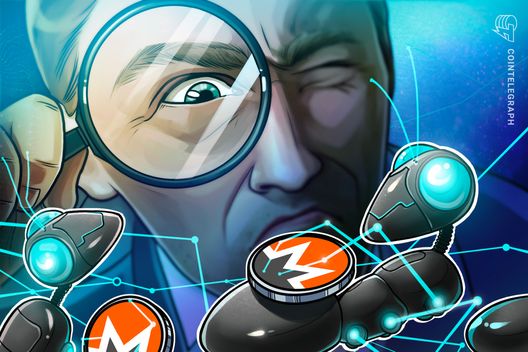

Monero, a privacy-focused cryptocurrency, is currently navigating an "economic attack" orchestrated by Qubic, a mining pool and crypto network spearheaded by Iota co-founder Sergey Ivancheglo. This situation has triggered a robust response from the Monero community, highlighting the network's resilience and the dedication of its users.
The core of the issue revolves around a hashrate takeover attempt. Qubic openly incentivized Monero CPU mining via its network, with the mined XMR intended to fund buybacks and token burns for the Qubic ecosystem. Ivancheglo admitted that Qubic aimed to control the majority of Monero's hashrate and reject blocks mined by other pools, effectively making mining only profitable through Qubic. As of Monday, July 28, 2025, Qubic's hashrate has decreased, positioning it as the seventh-largest XMR mining pool, a drop from its previous top spot.
The Monero community has reacted strongly to this attempted takeover, expressing concerns about the potential for hashrate centralization. Some community members have urged a switch to decentralized pools like P2Pool, while others have suggested protocol changes to mitigate the risk. There are fears that users might migrate to alternative networks if confidence in Monero erodes.
Ivancheglo stated that Qubic will stop reporting its hashrate from next Wednesday. This action would make it more difficult to assess how much of Monero's hashrate Qubic controls and the danger it poses to the network. Ironically, Ivancheglo claims he is trying to find a countermeasure to the attack he is orchestrating.
The Monero community's response demonstrates the importance of decentralized participation in maintaining network security. Some observers believe that Qubic is artificially inflating its hashrate. Concerns remain that a successful 51% attack could devastate trust in Monero, which is widely used for private transactions. Community members are taking the threat seriously and are actively discussing and implementing countermeasures.
This situation is not the first time Monero has faced a potential threat. In the past, Monero developers have been quick to patch vulnerabilities. In 2018, a community member revealed a bug that could allow an attacker to 'burn' the funds of an organization's wallet. The XMR developers quickly fixed it before any damage was done.
Despite the challenges, Monero continues to be a leading privacy coin. In April 2025, Monero experienced a price surge after a suspected hacker converted a substantial amount of Bitcoin into XMR. This event highlighted Monero's appeal and its unique position in the cryptocurrency ecosystem.